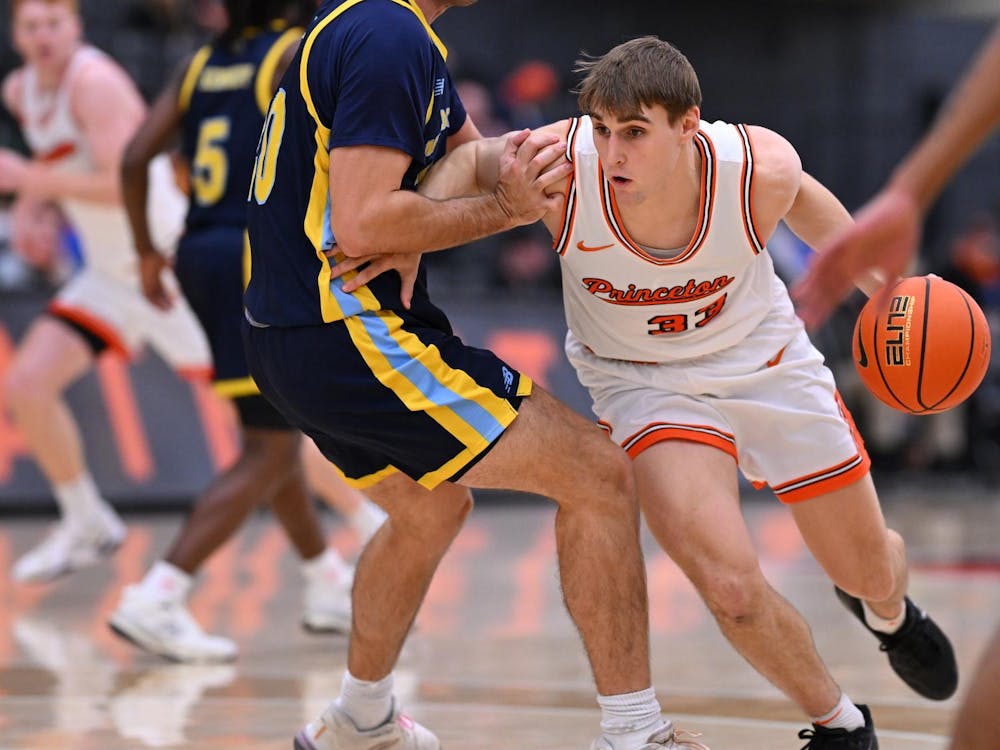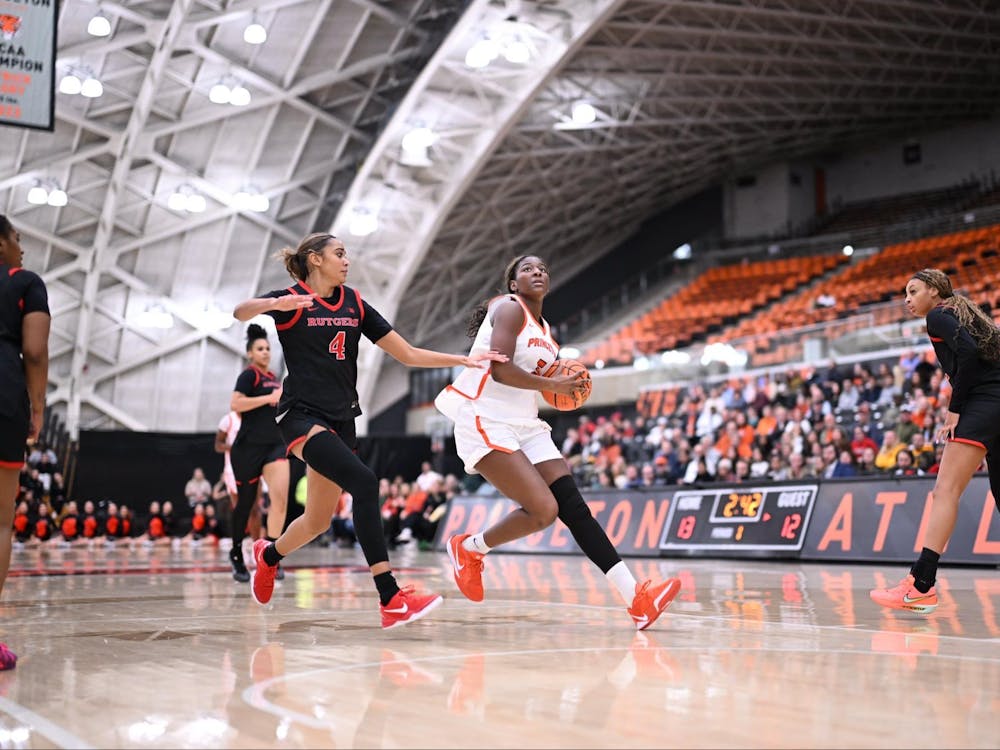In the women’s events, the first ever Ivy League Sprints were contested in conjunction with the lightweight EAWRCs. The open women’s first varsity boat, defending NCAA and EAWRC champions, finished third in its race to Harvard and Cornell. It was a disappointing loss for the Tigers, who beat both teams by more than six seconds earlier in the season at Lake Carnegie. On Sunday, however, the Crimson finished four seconds in front of Princeton, which had led most of the race and finished the 2,000m course in six minutes, 22.06 seconds.
Winning the NCAA championship will require a team effort, however, and Princeton showed its depth in the rest of Sunday’s races. The second and third varsity eights won their respective races, while the varsity four — which entered the weekend undefeated — lost to Harvard by two seconds after beating the Crimson by five seconds in early April. Though the loss was disappointing, the second-place finish was enough to propel the Tigers to the overall points title, which they have now won two years in a row.
The women’s lightweight team didn’t take home a championship, but it still posted impressive results during this rebuilding year. The first varsity boat finished fifth with a time of 6:52.04 in the EAWRC Grand Final, which was won by Wisconsin. It didn’t help that the Tigers’ stroke-seat rower had her seat fall off of its tracks mid-race.
“Our varsity eight was sluggish out of the blocks, but we passed Georgetown and Radcliffe to be in third place through the 1,000-meter mark,” women’s lightweight head coach Paul Rassam ’97 told goprincetontigers.com after the race. “The third 500 meters weren’t as strong, and then our stroke lost her seat. These things happen.”
A highlight for the lightweight women was the freshman eight. Even with a handful of rookies rowing in the varsity boat, Princeton’s freshmen took second behind the Badgers.
A few hours to the north, only one men’s boat finished in the top two in any final race at the EARC Sprints. The top heavyweight and lightweight boats showed potential in their morning heat races. Both teams lost to top-ranked Harvard by three seconds or fewer, and the heavyweights pulled an impressive time of 5:57.06 for 2,000 meters, which stood as the third-fastest heat time heading into the finals — a major improvement on their No. 7 seed.
But in the finals for the heavyweights, Brown and Harvard pulled away, rowing 5:49.6 and 5:49.9, respectively. The Tigers finished fourth in 6:02.10, also finishing behind the Badgers. The Tigers’ second and third varsity boats finished third and fifth in their races, respectively.
The lightweight men did not fare much better than the heavyweights on Sunday. After finishing fewer than three seconds behind Harvard to post a 6:07.46, the second-fastest time out of the heats, Princeton’s first varsity boat finished third as Dartmouth squeezed by for second place, nipping the Tigers by two feet at the line.

A highlight on the men’s side was the freshman lightweight eight, the only men’s crew to beat Harvard on Sunday. After pulling the fastest time among freshmen in the preliminary heats, the Tigers finished second to Yale in the final with a 6:24.92, fewer than four seconds out of first place.
The men’s teams and the lightweight women will train for three weeks before the IRA National Championships, while the open women will head just down the road to West Windsor for the NCAA Championships on May 25-27.








